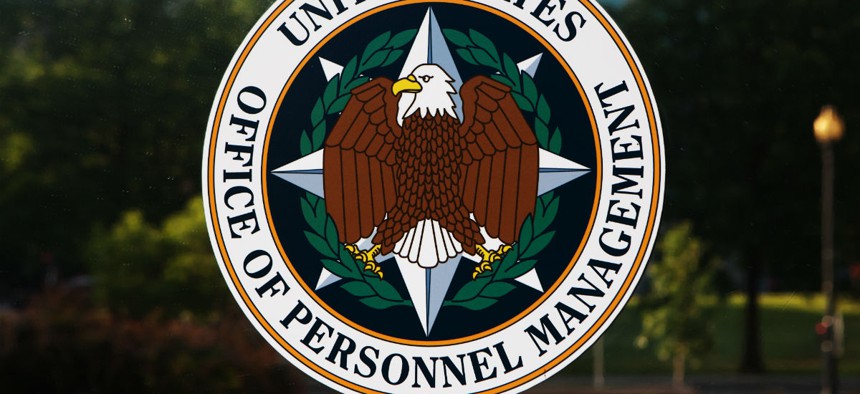
Mark Van Scyoc / Shutterstock.com
Most Stakeholders Say They're Optimistic About Trump’s New OPM Pick
Dale Cabaniss will be tasked with implementing controversial provisions of the Trump administration's government reorganization plan.
In the 24 hours since the White House announced that President Trump would nominate former Federal Labor Relations Authority Chairwoman Dale Cabaniss to lead the Office of Personnel Management, the response from stakeholders and observers has been mixed, although few outright oppose the choice.
Key management and good government groups said they will support the former FRLA head and longtime Senate Republican staffer to lead OPM, citing her experience in federal workforce issues.
“Dale Cabaniss will bring a strong background and excellent experience to OPM,” said Max Stier, president and CEO of the Partnership for Public Service. “The Partnership for Public Service is pleased to see this nomination, and we look forward to working alongside Dale to strengthen the federal workforce.”
The Government Management Coalition, a group of associations representing federal managers and senior executives, sent a letter Tuesday to the Senate Homeland Security and Governmental Affairs Committee, which will consider Cabaniss’ nomination, announcing its support. The coalition cited the need for Senate-confirmed leadership as the White House seeks to implement a controversial government reorganization plan that would send most of OPM’s transactional and HR functions to the General Services Administration and bring its policy shop into the Executive Office of the President.
“OPM, the agency tasked with overseeing the federal civil service, has lacked consistent Senate-confirmed leadership over the last several years,” the group wrote. “While the agency has certainly undertaken good work in the interim, it is in the midst of a significant reorganization effort with the General Services Administration and playing key roles in leading the President’s Management Agenda. Operating without a clearly established direction by Senate-confirmed leadership should not become the standard state of affairs for any agency, particularly for such an integral component for managing the federal workforce.”
Other groups, particularly those representing frontline federal employees, have been more cautious. Matt Biggs, secretary-treasurer of the International Federation of Professional & Technical Engineers, was optimistic about Cabaniss’ nomination, noting that she worked in Congress for moderates with a penchant for supporting federal employees and was originally appointed to FLRA by President Clinton.
“I don't necessarily see red flags with this pick,” Biggs said.
As of Tuesday afternoon, only the National Federation of Federal Employees said they would outright oppose Cabaniss’ nomination. NFFE Executive Director Steve Lenkart blasted Cabaniss’ tenure as chairwoman of the FLRA during the George W. Bush administration, saying it was plagued by poorly reasoned decisions, vacancies at key posts and a swiftly growing backlog of cases.
“Ms. Cabaniss’ time at the FLRA during [the Bush administration] is marred with: a record number of decisions overturned by the courts; consistent ridicule from judges on her decisions and legal logic, including ridicule from Republican-appointed judges; she left key positions vacant; [and] the case backlog grew at a record rate (until Trump),” Lenkart said. “So, in short, this is another unqualified and proven failure of a nomination who was chosen, based on her track record, to bring chaos into yet another federal agency.”
Tony Reardon, national president of the National Treasury Employees Union, did not say whether his union would oppose Cabaniss’ nomination, but he was critical of the reorganization plan as it pertains to OPM.
“NTEU believes the Office of Personnel Management should remain an independent, central personnel agency outside of the Executive Office of the President, and if Dale Cabaniss is confirmed as OPM director, we hope she will help maintain the current organizational structure that allows OPM to protect the professional, merit-based civil service from partisan manipulation,” Reardon said. “Another key priority for NTEU is ensuring all precautions are taken to protect federal employee personal information and providing continued monitoring for those already affected by the previous breaches.”
Cabaniss won praise during previous confirmation processes for being “an effective bipartisan voice on civil service” issues, and her nomination to FLRA chairman was unopposed.
Biggs, while not directly opposing Cabaniss, remained skeptical of the administration's intentions given its sometimes adversarial relationship with the federal workforce.
“Let's hope she approaches her important role, if confirmed, to work with federal workers, and not against them,” Biggs said.
NEXT STORY: Automation and the Future of Work






